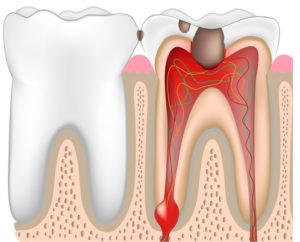 Hair loss, migraines, joint pain, gastrointestinal problems, or frequent injuries during exercise are seemingly unrelated symptoms that may have a chronic infection in the body as an underlying cause.
Hair loss, migraines, joint pain, gastrointestinal problems, or frequent injuries during exercise are seemingly unrelated symptoms that may have a chronic infection in the body as an underlying cause.
Focal infections can cause systemic diseases throughout the body, which can be ascribed to dental focal infections. This puts the importance of timely dental treatment in a whole new light.
Other organs in the body can also be a source of focal infections – e.g. tonsils, sinuses, middle-ear, appendix, prostate, gallbladder, ovaries, etc.
Possible Symptoms of Focal Infections
Different bacteria can localise in a region in the body causing persistent infection in the region. However, just because the infection is limited to a certain organ in the body, it doesn’t mean that it cannot spread to other areas too.
Inflammation-causing bacteria can spread to other parts of the body via our bloodstream or the lymphatic system, causing all sorts of symptoms and diseases.
When this happens, we’re dealing with a focal infection that must be dealt with promptly.
Possible symptoms of a focal infection in the body include:
- Patchy hair loss;
- Skin problems (eczema, psoriasis);
- Allergic skin reactions;
- Heart and cardiovascular diseases;
- Chronic kidney infections;
- Recurrent headaches;
- Liver abscess;
- Respiratory diseases (COPD, aspiration pneumonia, etc.)
- Gastrointestinal diseases (stomach ulcer, duodenal ulcer, Crohn’s disease);
- Frequent unexplained sport injuries, etc.
These are just some of the symptoms that may lead your general practitioner to believe that a focal infection may be at the root of the health problems you’re experiencing.
If there’s a suspicion of focal infection, your GP may refer you to other specialists to try to find the source of the infection that may be causing these symptoms.
Your GP may refer you to a dentist for a dental check-up too, since focal infections can be ascribed to infections of the oral cavity as well.
Infections of the Oral Cavity & Treatment
Tooth decay, infections of the endodontium and the root canals, dental abscesses, gingivitis (mild form of gum disease), periodontitis (a more advanced form of gum disease), impacted teeth and other inflammatory processes are all possible sources of focal infections that must be addressed by your dentist.
During a routine dental check-up many of these problems can be easily identified and a treatment plan can be drawn up that should stop the systemic effects of the focal infection.
The treatment plan can involve professional dental cleaning for various gum diseases, dental surgery for periodontal diseases, root canal treatment, surgical removal of impacted teeth, removal of dental cysts, etc.
If dental focal infections were the cause of the systemic diseases you’ve experienced, in a couple of weeks after proper dental treatment and recovery a significant improvement should be noticed for all other symptoms as well.
How to Prevent Dental Focal Infections?
Good oral hygiene and regular dental check-ups are the best ways to prevent infections that may spread to other regions of the body if they’re not treated.
Each year, our dental clinic offers comprehensive dental treatment to thousands of patients from Ireland and the UK.
If you’re dealing with persistent dental inflammation and need access to affordable dental treatment in a state-of-the-art medical facility, don’t hesitate to make an appointment at our clinic.
